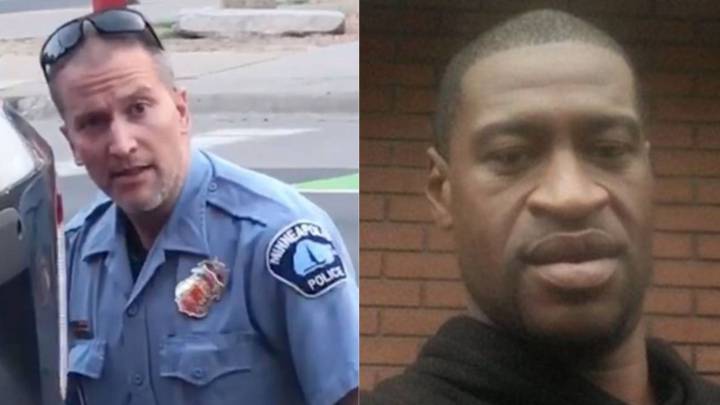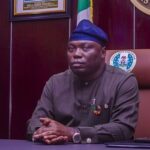Last year on the 25th of May, Minneapolis police officers arrested George Floyd, a 46-year-old black man, after a convenience store employee called 911 and told the police that Mr Floyd had bought cigarettes with a counterfeit $20 bill. Less than twenty minutes later, and before you could say ‘Femi Gbajabiamila’, the first police car arrived and George Floyd was pronounced dead.
A nine-minute video captured by an innocent bystander showed two police officers pinning him to the ground while the third knelt on his neck. George’s repeated cries of ‘I can’t breathe’ was ignored until his brain shut down and he passed away. The video trended- for the right reasons- and sparked a political, moral and justified outrage, that overnight caused America to be thrown into chaos. Protests quickly turned violent and spread across several countries sparking international debate, once again, about America’s justice system. Because it was 2020, and yours truly was still the President then, some foolish people were paid to come on television to say that the death was because of his ‘background heart condition and the drugs in his system.
- Enku Ekuta: My Olympian mum inspired me to be a judoka
- Students lament state of clinics in Nigerian universities
Fast forward to April 20th, 2021, the jury found Derek Chauvin, the police officer who choked Floyd to death, guilty on three charges: second-degree murder, third-degree murder and manslaughter. His bail was immediately revoked and he was placed in custody. This historic moment was marked by tears of joy and even warranted a statement from the POTUS. In his speech, he congratulated the justice system of America and praised their strong legislative institutions.
But is it true? Do they really have strong justice systems as we think they do? Was Chauvin not simply the scapegoat in preventing a much bigger catastrophe? Is it not true that public schools in Minneapolis were closed over fears of the catastrophic outrage that would follow if Chauvin was acquitted? This means that, even with clear video evidence, a percentage of Americans still felt that Chauvin was not guilty. This action also implies that Americans do not completely have faith in their justice systems.
As I watched Floyd’s family weep tears of joy, the happiness I felt within me was tainted with a dose of cynicism, I now realise is the truth. Derek Chauvin was not convicted of the murder of Floyd because racism is over or because the justice system works. It happened because the establishment feared the consequences of protecting their own. White America is slowly realising that acquitting police officers who kill black people randomly and meaninglessly, may not be in their best interest all the time. It is similar to the case of beating a wild animal and cornering it to a wall, the beast will have no choice but to charge forward, at you. White America fear the repercussions that would certainly follow: the violence, loss of life and property and the international embarrassment, not that it would have bothered Trump anyway.
The crucial element here, I surmise, is that they realise that the world is watching. That we cannot hope to achieve goal 16 of the Sustainable development goals without having justice among different countries and races. That we cannot even imagine having an iota of justice in a world where the justice system is not an independently strong institution. Is that not why peace continues to elude us in Nigeria? The fact that people can, quite simply, get away with murder? That the law enforcement system sees itself as untouchable? I remember a soldier once said to our driver at a checkpoint in Maiduguri, when he asked why he was asked to step out of the car: ‘I can shoot you now and nothing will happen. Infact, government will even pay me sef!’. Needless to say, the man promptly came out of the car, sharp- sharp. You do not argue with someone holding a gun.
The Floyd/Chauvin trial has brought with it a lot of lessons, not only for black people in America but for all the people around the world who continue to suffer injustice based on race, religion and tribe, at the hands of their leaders.
The first lesson here is to never give up on activism. To keep fighting for justice. And that protests –however they turn out- do work. Despite a raging pandemic, people of all races, colours, and creed took to the streets. Those who didn’t march came up with action plans on Zoom. White people listened to their friends of colour in ways they never listened before. They didn’t want to be a part of the problem anymore.
Another dimension to activism is the importance of standing up as a unit to defend injustice is crucial in the fight for equality. Again here, I will refer to the Nigerian context. I still believe one of the reasons Boko Haram continues to thrive is because some part of the country felt it was and still is a ‘Northern problem’. Leaders continued to act slowly and look the other way until Boko Haram arrived Abuja. Similarly, when the End SARS protests started, the North looked the other way. That is, until the trucks from the north were destroyed due to violence, then suddenly people began to ask ‘Shin wai menene SARS?’ We need to understand that injustice to a group, is injustice to all. The day we unite as one to protest against the injustice meted out by our leaders in the form of Inflation, corruption and insecurity is the day, government realises they cannot mess with us. This ‘E no concern me’ attitude will continue to fail us, woefully.
Secondly and perhaps the most important lesson here is the importance of social media. That a nine-minute video clip taken by a random stranger who just happened to be there, could be shared all around the world on different media platforms and was powerful enough to ensure that Floyd got the justice he deserved is nothing short of amazing. Because the truth is, regardless of what the forensic pathologist said was the cause of death, it was that damning video of a man being choked to death that would be forever etched in the mind of the jury. The sense of sight is very strong and perhaps even more important than all the other senses combined. The lesson here is the power of the media. Social media has come to stay and whether we like it or not, it will continue to act as a catalyst in the fight against injustice.
Lastly, this case highlights the importance of having strong institutions. In Africa, it is often said that we have powerful leaders but weak institutions. Our justice system ultimately depends on one man’s decision. How dare you jail a person caught on tape for fraud? Do you know who he is? All he or she needs to do is to bribe the head of EFCC or whatever legal organisation and the case is immediately closed. Everyone is scared to do the right thing. They could be fired, ridiculed or even eliminated. Hence, the inability to prosecute the ‘big men’.
Building a strong, independent judicial system is the first step towards tackling injustice in our world. And for whatever reason this verdict was given to Chauvin, it proves that, at the end of the day- Peace can only be achieved when we collectively fight injustice.
May this verdict be the beginning of better things to come.

 Join Daily Trust WhatsApp Community For Quick Access To News and Happenings Around You.
Join Daily Trust WhatsApp Community For Quick Access To News and Happenings Around You.


